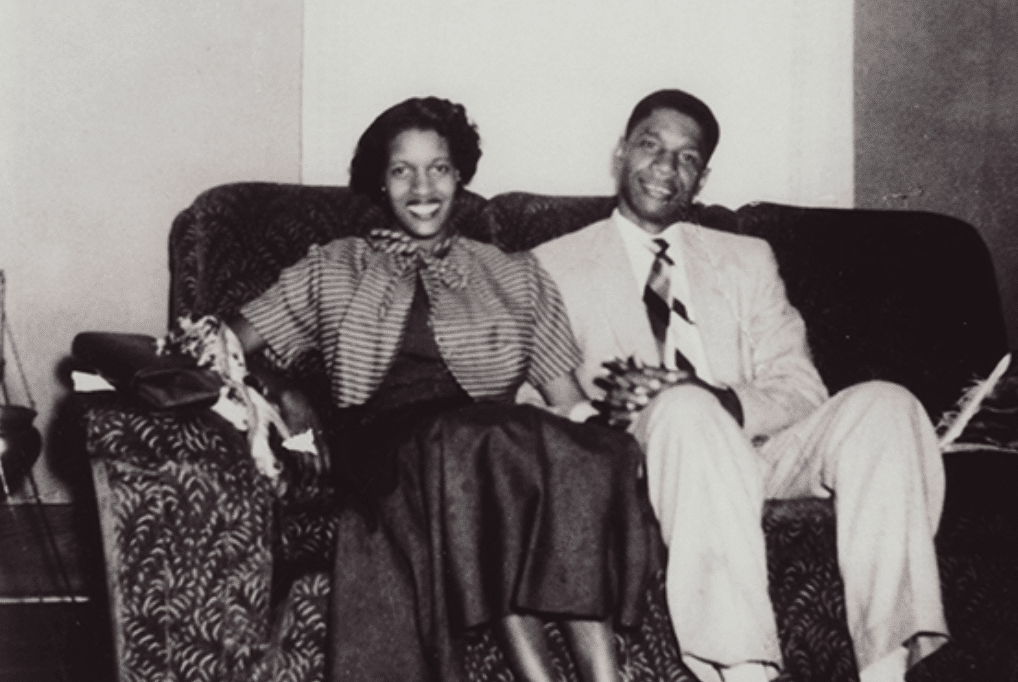Mississippi Today
How United Furniture went from state-funded darling to coldly laying off 2,700 workers

How United Furniture went from state-funded darling to coldly laying off 2,700 workers
United Furniture Industries — the Tupelo-based furnishings manufacturer that recently laid off its entire staff via email and text message – received more than $3 million dollars in taxpayer money through business incentive grants since 2009.
The furniture company regularly got sums every few years — ranging from $200,000 to $1.3 million — in exchange for the promise to create jobs.
It was the largest employer in Monroe County. Now, its owner is missing and its former employees are filing lawsuits and hunting for new jobs.
“It's a disgrace is what it is,” Jackson-based attorney Phil Hearn told Mississippi Today. Hearn is leading a class-action lawsuit on behalf of hundreds of workers.
United was an anchor of the furniture manufacturing hub of Northeast Mississippi — among the dozens of companies benefitting from decades of tax breaks to do business in-state. The companys buildings in Lee County were free from local and state property taxes, another incentive perk. It also likely saved massive amounts of money on its payroll taxes as part of a job creation rebate program and tax credits from a special program for upholstery companies.
When then-Gov. Phil Bryant announced that United would get more than $1.3 million to support an expansion in 2013, he called the manufacturer “a valued business partner for the State of Mississippi.”
In 2015, the company got $500,000 more with similar fanfare. Then, $200,000 the next year and another promise of 100 new jobs. Both the most recent grants were awarded through the state's “ACE” program – commonly referred to as “deal closing funds” when competition is fierce.
Every celebrated announcement touted jobs, partnerships and keeping Mississippians at work in the furniture industry.
But with one email to 2,700 employees overnight a few days before Thanksgiving, that long-standing partnership shattered. The company wasn't just closing – it was already closed. No federally-mandated warning to employees that layoffs were coming. No announcement of a sale. No filing for bankruptcy.
Just closed.
Hearn said in his three decades as an attorney handling employee rights cases, he's never seen anything like this: a total disregard for labor laws, no planning, and limited information available to workers.
“I've been with the company through several owners and names,” line worker Jeff Jones told the Daily Journal. “We've always bounced back. In the email they made it perfectly clear there's no bouncing back from this.”
Jones worked for United Furniture for more than 30 years.
Hearn said the state's history of supporting the company gave employees a sense of security that made the sudden collapse even more shocking.
“It can be difficult to evaluate some of these incentive programs for various reasons,” said State Economist Corey Miller. “A number of companies that get them get more than one incentive, and it's difficult to untangle the impact of each one.”
Miller said in the case of United, the company's sudden fall doesn't mean the millions the state put up to support the company were for nothing.
“I don't think they necessarily weren't worth doing,” Miller said. “I haven't evaluated the whole situation, but it's possible because they were around for a while, people had jobs, that the state got some return on investment.”
United Furniture was created after a merger between three companies in 2000: Comfort Furniture, Parkhill Furniture and United Chair. Comfort Furniture, the leading of the three, was founded in Mississippi in 1983.
Over the 2010s, the company regularly received state-funded support in grants through the Mississippi Development Authority. In addition to grants, the company was also certified to participate in the state's Advantage Jobs Incentive Program, which allows companies to have up to 90% of payroll taxes withheld for up to a decade dependent upon the number of jobs it created.
In 2020, the revenue department projected the total cost of the program would be about $18 million and covered a dozen companies in 10 counties – including in counties that were home to United facilities.
Another tax credit program, specific for upholstery companies such as United, allows them up to $2,000 job tax credit per position created since 2010 and covers up to 100% of their income tax liability.
But any details about if United – or any one company – took advantage of either programs and to what extent isn't public, according to the state Department of Revenue.
By 2017, United had about 3,500 employees and facilities in Nettleton, Tupelo, Okolona, Sherman, Vardaman, Amory and out-of-state facilities in North Carolina and California. The company took over a Belden factory that belonged to a competitor, buying out the Lane brand for an undisclosed amount.
But in July of this year, United announced it was laying off 300 people and closed its Amory plant because it was turning the facility into a distribution warehouse. After the layoffs, the company still had 17 facilities (including one in Vietnam) and about 2,700 employees.
“Our team is committed to the long-term success of our company,” then-Chief Executive Officer Todd Evans said in a statement at the time. “That commitment requires right-sizing at the present time. We are confident that the product, sales, and operational plans that we have established will provide for a successful future.''
But that success didn't come.
Miller, the state economist, said the United situation seems like more of an outlier — not an indication Northeast Mississippi's furniture industry as a whole is in danger.
There has been some slow down industry-wide, Miller said. Companies aren't seeing the same high demands for home furnishings they were during the pandemic. But most companies aren't at a crisis level.
The larger economic impacts to the Monroe and Lee counties will depend upon how quickly workers are in new jobs, Miller said.
Nettleton-based furniture manufacturing company Homestretch Furniture hired 15 former United workers at a recent job fair. Ashley Furniture, another company with local manufacturing, has also recruited workers.
MDA declined to make any comments specific to United or its past grants, but Deputy Director Laura Hipp said in a statement that the state agency will “work with local economic development partners on how the needs of the area can be supported.”
Hearn, the attorney, said he's seen entire families devastated: five brothers who all worked for United, a mother and two daughters – one pregnant – now without health insurance.
His clients largely fall into two categories: eager for another furniture job because it's all they know, or eager for a change because they're terrified the same thing will happen at another plant.
His clients range from executive-suite workers to line workers and truck drivers.
“They all have one thing in common,” he said. “They're scared to death.”
Had United followed Worker Adjustment and Retraining Notification (WARN) laws, it would have given employees 60 days notice before the massive layoffs.
The decision to shutter the company came from Stage Capital LLC, the company's owners. Head of Stage Capital, David Belford, has been missing since the email closing the company went out.
Hearn said he's heard company rumors the millionaire – or possible billionaire – ran off to Paris.
United is now facing three class-action lawsuits – which a judge could roll into one case – that accuses the company of failing to follow the WARN Act and still owing workers their last week's paycheck.
“I've never seen anything so callous,” Hearn said.
This article first appeared on Mississippi Today and is republished here under a Creative Commons license.
Mississippi Today
Legislature, flush with cash, passes budget, completing work for 2024 session
The Mississippi Legislature completed its work for the 2024 session on Friday with the passage of a $7 billion state budget – 5.8% larger than the budget it passed last year.
The $7 billion reflects the amount spent on recurring expenses. The budget last year, including one-time funds, COVID-19 federal relief funds and other one-time money for specific projects, actually was more than the budget passed this year.
The completion of the budget late Friday ended the bulk of lawmakers' work for the 2024 session, but legislators will return briefly Saturday to take care of procedural issues. Plus, the Legislature might reconvene on May 14 to deal with any veto from Gov. Tate Reeves.
One of the final actions on Friday was approving a massive bill that provides state money for projects throughout the state. The legislation funds tourism projects, work on local governmental office buildings and other projects for individual legislators.
Th total amount of the projects was $227.4 million.
In the past, projects were often funded by borrowing. But in recent years, thanks in large part to an infusion of federal COVID-19 funds and other federal funds, Mississippi, like most other states, has been flush with cash, allowing those projects to be funded with cash instead of long-term debt.
Senate Finance Chair Josh Harkins, R-Flowood, told senators paying for the projects with cash will not continue in future years. State revenue has begun to slow.
Harkins told senators there were more than $1 billion in requests on the local level for projects.
Sen. Angela Turner Ford, D-West Point, asked Harkins how it was decided which projects to fund.
Harkins said the focus was on infrastructure projects and other projects where it was viewed the greatest need was.
In addition to the pet projects for lawmakers, other capital spending included:
- $110 million for university projects.
- $45 million for community college projects.
- $160 million for work on improving state Highway 7 in Lafayette County.
- $90 million for work on U.S. I-55 in DeSoto County.
- $50 million for work on state office buildings throughout the state.
In total, $820 million was committed in surplus funds for building projects throughout the state. Plus, $110 million in surplus funds was pumped into the Public Employees Retirement System to help shore up the government pension plan.
In terms of the budget to operate agencies, House Appropriations Chair John Read, R-Gautier, said state agencies are receiving an average 5% year-over-year increase in funding.
That increase includes money to pay for increases in the premiums for the state employee health plan and to pay for a .5% increase for each state agency in the contribution to the state retirement plan.
Lt. Gov. Delbert Hosemann said before the session began that dealing with financial issues facing PERS was one of the top priorities.
“We tackled the PERS issue,” Hosemann said, though, some argued that the legislative solution did not resolve all the financial issues facing the system.
Senate Appropriations Chair Briggs Hopson, R-Vicksburg, said the state budget provides funds to allow state agencies to deal with inflation.
“The budget is reflective of the times,” Hopson said. “State agencies are not immune to inflation. In order to provide services at the same level, we have to spend additional funds.”
The budget includes an additional $240 million in funding for K-12 schools.
This article first appeared on Mississippi Today and is republished here under a Creative Commons license.
Mississippi Today
On this day in 1850


May 3, 1850

Shadrach Minkins, already separated from his family, escaped from the Norfolk, Virginia, home, where he was enslaved. He made his way to Boston, where he did odd jobs until he began working as a waiter at Taft's Cornhill Coffee House.
Months later, Congress passed the Fugitive Slave Act, which gave authorities the power to go into free states and arrest Black Americans who had escaped slavery.
A slave catcher named John Caphart arrived in Boston, with papers for Minkins. While serving breakfast at the coffee house, federal authorities arrested Minkins.
Several local lawyers, including Robert Morris, volunteered to represent him. Three days later, a group of abolitionists, led by African-American abolitionist Lewis Hayden, broke into the Boston courthouse and rescued a surprised Minkins.
“The rescuers headed north along Court Street, 200 or more following like the tail of a comet,” author Gary Collison wrote. They guided him across the Charles River to the Cambridge home of the Rev. Joseph C. Lovejoy, whose brother, Elijah, had been lynched by a pro-slavery mob in Illinois in 1837.
Another Black leader, John J. Smith, helped Minkins get a wagon with horses, and from Cambridge, Hayden, Smith and Minkins traveled to Concord, where Minkins stayed with the Bigelow family, which guided him to the Underground Railroad, making his way to Montreal, spending the rest of his life in Canada as a free man.
Abolitionists cheered his escape, and President Millard Fillmore fumed. Morris, Hayden and others were charged, but sympathetic juries acquitted them. Meanwhile in Montreal, Minkins met fellow fugitives, married, had four children and continued to work as a waiter before operating his own restaurants.
He ended his career running a barbershop before dying in 1875. A play performed in Boston in 2016 told the dramatic story of his escape.
This article first appeared on Mississippi Today and is republished here under a Creative Commons license.
Did you miss our previous article…
https://www.biloxinewsevents.com/?p=355311
Mississippi Today
Medgar Evers will receive Presidential Medal of Freedom

At her husband's funeral in 1963, Myrlie Evers heard NAACP Executive Director Roy Wilkins declare, “Medgar Evers believed in his country. It remains to be seen if his country believes in him.”
Later today, his country will declare its belief in him when the family of the slain Mississippi NAACP leader receives the Presidential Medal of Freedom, the highest civilian honor.
But Medgar Evers was more than a civilian. He fought the Nazis in World War II, only to return home and fight racism, this time in the form of Jim Crow, which barred Black Mississippians from the ballot box.
On his 21st birthday, he and other Black veterans of the war went to vote at the courthouse in Decatur, where they were met by white men with guns.
Afterward, he vowed he would never be defeated again and that he would keep fighting by joining others dedicated to the cause of the civil rights movement.
“The movement for equality was always on his mind, and whites' denial of his right to vote in his hometown served as one cog of many in the overall wheel of injustice, a wheel of which he was bound and determined to break,” said Michael Vinson Williams, author of “Medgar Evers: Mississippi Martyr.”
Myrlie Beasley met Medgar Evers on the first day of her freshman year at Alcorn A&M College in fall 1950. As she leaned against a light pole, she said he told her to be careful, “you might get shocked.”
And shocked she was when she fell in love and married him a year later. He was one of those military veterans that her family had warned her about. And he was involved in the movement that her family had avoided.
She joined him in the fight, and they moved to Mississippi's only all-Black town, Mound Bayou, where he helped Dr. T.R.M. Howard lead a boycott. They distributed thousands of fluorescent bumper stickers that read, “Don't Buy Gas Where You Can't Use the Restroom.”
In January 1954, the University of Mississippi School of Law turned Medgar Evers away because of the color of his skin. NAACP officials considered taking his case to court, but they were so impressed with him they hired him instead as the first field secretary for the Mississippi NAACP.
Myrlie Evers worked as his secretary. She said he insisted they call each other “Mr. Evers” and “Mrs. Evers” in the office.
He spent much of his time on the road, putting 40,000 miles a year on his car, recruiting new members, reviving branches and inspiring young people to participate in the movement, including Joyce Ladner, who invited him to speak to the NAACP Youth Council in Hattiesburg.
“He had a quiet courage,” she recalled. “I was always amazed that he drove up and down Mississippi's two-lane highways alone at night. He was a marked man, but he kept on going.”

In 1961, Joan Trumpaeur Mulholland was one of more than 400 Freedom Riders, half of them white, who challenged segregation laws in the South. She and other Riders were arrested and sent to serve their time at the State Penitentiary at Parchman.
When she and other Riders needed a lawyer, Medgar Evers “was the one who took care of it,” she said.
He became a model for her and others in character and courage, talking often to Tougaloo College students, she recalled. “He wasn't intimidated.”
In 1962, Evers installed Leslie McLemore as president of the Rust College chapter of the Mississippi NAACP. “Medgar Evers was really a brilliant man,” he said. “He had an incisive mind and personality that drew people to him. In another era, he could have been a U.S. senator from Mississippi or maybe even President.”
Evers investigated countless cases of intimidation and violence against Black Americans, including the 1955 murder of Emmett Till. Evers often dressed as a sharecropper in those investigations.
No matter where he went, threats of violence followed. He bought an Oldsmobile 88 with a V-8 engine so powerful it would leave most cars behind. On some dark nights across the Mississippi Delta, he floored it to escape those hell-bent on harming him.
His name appeared on Ku Klux Klan “death lists,” and his home telephone rang at all hours with threats to him and his family.
When his daughter, Reena, answered the phone one time, she heard a man saying he planned to torture and kill her father.
In spite of these threats, he stayed. He told Ebony magazine, “The state is beautiful, it is home, I love it here. A man's state is like his house. If it has defects, he tries to remedy them. That's what my job is here.”
On May 20, 1963, Evers talked on television about the mistreatment of Black Mississippians. “If I die, it will be a good cause,” he told The New York Times. “I'm fighting for America just as much as the soldiers in Vietnam.”
Weeks later, President Kennedy delivered his first and only civil rights speech, telling the millions watching on television, “If an American, because his skin is dark, cannot eat lunch in a restaurant open to the public, if he cannot send his children to the best public school available, if he cannot vote for the public officials who will represent him, if, in short, he cannot enjoy the full and free life which all of us want, then who among us would be content to have the color of his skin changed and stand in his place?”
Evers smiled. He and other Black leaders had urged Kennedy to push Congress for a civil rights bill, and now that seemed certain to happen.
Hours later, returning home from a late civil rights meeting, Evers was shot in the back in the driveway of his Jackson home.
Myrlie Evers and their three children dashed outside, saw the blood and screamed. “Daddy!” Reena yelled. “Please get up, Daddy.”
He never did.
“He had the courage to hold an impossible job at a crucial turning point in American history,” said Taylor Branch, the Pulitzer Prize-winning author of a trilogy on the civil rights movement.
For the first time, members of the mainstream press didn't call such a killing “a lynching,” he said. “They called it an assassination.”
In his book, “Parting the Waters,” he wrote, “White people who had never heard of Medgar Evers spoke his name over and over, as though the words themselves had the ring of legend. It seemed fitting that the casket was placed on a slow train through the South, bound for Washington so that the body could lie in state.”
After the casket arrived, Medgar Evers was buried with full military honors at Arlington National Cemetery.
“The tragedy of his martyrdom is eloquent testimony to the courage and dedication of a leader who — in his lifetime — deserved the respect and support of the powerful people who later publicly identified with this man and his cause,” said John Dittmer, author of “Local People: The Struggle for Civil Rights in Mississippi.” “Though long overdue, this award is a fitting tribute to Medgar Evers and his family.”
A year after Evers' assassination, Congress passed the Civil Rights Act on his birthday, and President Lyndon B. Johnson signed the bill into law hours later.
“Medgar Wiley Evers boldly stood against injustice, against oppression, against this country's determination to keep Black people as second-class citizens,” Williams said, “and he was murdered because of his commitment to truth, justice and the struggle for civil and human rights.”
Before leaving office as governor in 1984, William Winter hosted Myrlie Evers and her family at the mansion, where he remarked that Medgar Evers did more than just free Black Mississippians, he freed white Mississippians as well from the bonds of racial segregation, oppression and hate, he said. “We were all prisoners of that system.”
It took three decades before Evers' killer was finally brought to justice in 1994, and that verdict helped to inspire the reopenings of other cases. There have been 24 convictions in civil rights cold cases.
Myrlie Evers' courage to press for justice in her husband's case started all of this, said Leslie McLemore, who helped found the Fannie Lou Hamer National Institute on Citizenship and Democracy. “It would not have happened without her persistence.”
When she learned last week about the Presidential Medal of Freedom honoring her late husband, she exclaimed to her daughter, Reena Evers-Everette, “Oh, my God!”
Then Myrlie Evers grew silent.
“I'm just utterly speechless,” she said, “and frozen with gratitude.”
Evers-Everette still misses the man she knows as “Daddy,” but she perseveres as the executive director for the Medgar and Myrlie Evers Institute, because his spirit inspires her.
“I feel him around me all the time,” she said. “I marvel at his courage, stamina, vision, and commitment for equality and justice for his people and all of humanity. I pray for his love and wisdom as I pursue this work, because I don't want him to have died in vain.”
This article first appeared on Mississippi Today and is republished here under a Creative Commons license.
Did you miss our previous article…
https://www.biloxinewsevents.com/?p=354725
-
Mississippi Today6 days ago
On this day in 1951
-
SuperTalk FM1 day ago
Driver’s education set to become mandatory in Mississippi as bill passes
-
SuperTalk FM4 days ago
Festival merger in Leland sets up one major event for Mississippi Delta
-
Mississippi News7 days ago
One injured in Mississippi officer-involved shooting after chase
-
Mississippi Business3 days ago
Geartek expanding operations in Alcorn County
-
SuperTalk FM5 days ago
PERS bill set to phase in employer rate increase heads to governor’s desk
-
Mississippi News4 days ago
Two women accused of shoplifting across southeast captured in Mississippi
-
Mississippi News2 days ago
Altercation at Mississippi police department leads to officer-involved shooting




































